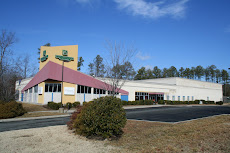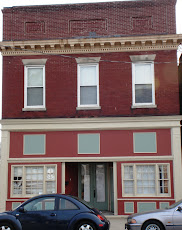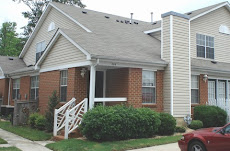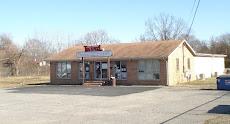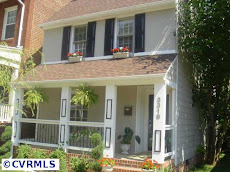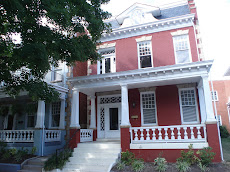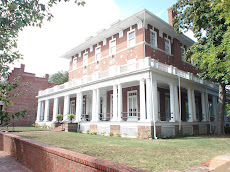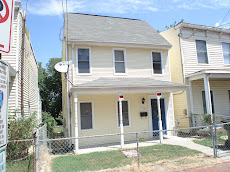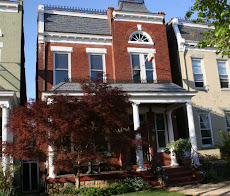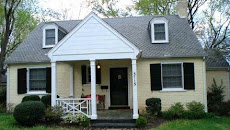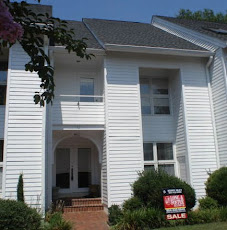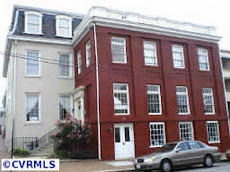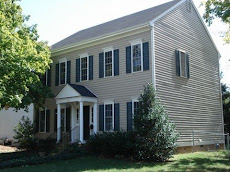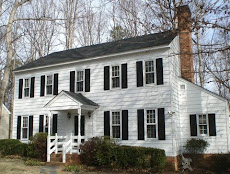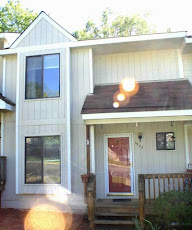Here are the street closings for this weekend. I'll never forget taking a wrong turn one weekend when my girlfriend told me the right way to go and got stuck and had to eat crow :(
TRAFFIC PATTERN CHANGES
Saturday, November 14, 2009
· Cary Street will be closed between 3rd and 12th Streets from 4am to 5pm. The recommended detour is southbound 2nd Street to Byrd Street. Byrd Street will bear left and intersect Canal Street. Follow Canal east to 14th Street.
· Broad Street (both eastbound and westbound) between 5th and 11th Streets will be closed to traffic from 4 to 9am. Westbound traffic will be detoured north onto 11th Street and west on Leigh Street to the Boulevard.
· Broad Street (both eastbound and westbound) between 5th Street and N. Boulevard will be closed from 6 to 9am. Eastbound traffic will be detoured north on Sheppard Street, east on Marshall Street, north on the Boulevard, east on Leigh Street, south on 10th Street, east on Marshall Street, south on 12th Street back to Broad Street.
· Grace Street from Allen Ave. to 3rd Street will be closed from 6am to 3pm.
· 3rd Street from Broad Street to Cary Street will be closed from 6am to 3pm.
· Mulberry Street between Broad St. and Monument Ave. will be closed from 6 to 9am for the HCA Virginia 8K.
· Grace Street will be closed between Boulevard and Allen Ave. from 6 to 9am for the HCA Virginia 8K.
· Lombardy Street between Brook Rd. and Monument Ave will be closed from 7am to 3pm.
· North Boulevard northbound from Broad St. to Hermitage Rd. will be closed from 7 to 10am for the McDonald’s Half Marathon.
· Hermitage Road northbound from Boulevard to Pope Ave will be closed from 7 to 10am for the McDonalds Half Marathon.
· Brookland Parkway eastbound from Hermitage Rd. to Lamont St. will be closed from 7 to 10am for the McDonald’s Half Marathon
· Bellvue Avenue from Hermitage Rd to Bryan Park entrance will be closed from 7AM to 10AM for the McDonald’s Half Marathon.
· Monument Avenue westbound between Mulberry and Westmoreland will be closed from 7:30 to 9:30am.
· Grove Avenue westbound between Commonwealth and Maple will be closed from 7:30 to 10:00am.
· Maple Avenue from Grove to Cary Street will be closed from 7:30am to 10:00am
· Riverside Dr. will be closed from the Huguenot Bridge to Scottview Drive from 6am to Noon.
· Forest Hill Ave. westbound from Roanoke St. to W. 47th St. will be closed from 8 to 11:30am.
· Belvidere Street northbound at Grace Street will be closed from 7am to 3pm. The recommended detour will be east on Byrd Street to the Downtown Expressway eastbound to I-95 northbound.
· Belvidere Street southbound between Broad and Grace Streets will be closed from 7am to 3pm. The recommended detour for southbound Belvidere Street will be onto I-95 southbound just north of Leigh Street
· The Huguenot Bridge will be closed to northbound traffic from 8am to approximately 11am. Northbound traffic on Huguenot Road will be detoured north from Huguenot Road onto Chippenham Parkway to the Willey Bridge
· The southbound exit ramp from the Powhite Parkway to Forest Hill Avenue and the northbound entrance ramp from westbound Forest Hill Avenue onto the Powhite Parkway will be closed to traffic from 8am until approximately 11am.
· There will also be numerous and frequent lane closures along the Marathon, Half Marathon & 8k routes, including closures on: Broad Street, North Boulevard, Monument Avenue, Grove Avenue, Maple Avenue, Cary Street Road, River Road, Scottview Drive, Forest Hill Avenue, Semmes Avenue, the Lee Bridge, Belvidere Street, West Main Street, Hermitage Road, Fauqier Avenue, Brook Road. Motorists are advised to use extreme caution when entering these roadways or making turns across the runners' paths along these roadways
.
Tuesday, November 10, 2009
Friday, November 6, 2009
Breaking News
President Barack Obama inked his approval of the bill extending and expanding the homebuyer tax credit incentive Friday morning.
The housing tax break, which was initially set to expire at the end of this month, is now available to buyers who sign a contract by April 30, 2010, and close by June 30.
The credit amount is based on 10 percent of the home’s purchase price. The maximum available to first-time buyers is $8,000. Other buyers, who’ve lived in their current residence for at least five years but want to relocate to a new primary residence can receive a credit of up to $6,500 – the incentive for these so-called “step-up” buyers will begin on December 1 of this year.
The income limits for both first-timers and step-up buyers is $125,000 for individuals and $225,000 for couples – up significantly from the current first-time buyer thresholds of $75,000 per individual and $150,000 per couple.
The tax break is only available on primary residences priced at $800,000 or less. Vacation or investment properties are not eligible. Beneficiaries who sell the home or stop using it as their primary residence within three years would be required to repay the credit.
“The rebound in the housing market was one of the big factors that contributed to the growth of the economy last quarter,” President Obama said at a national address in the White House Rose Garden Friday. “We want to give even more families the chance to own their own home.”
The expansion of the homebuyer tax benefit received widespread support from lawmakers, despite concerns over what it might cost the government in lost taxes.
The measure passed unanimously in the Senate earlier this week and cleared the House with a vote of 403 to 12.
President Obama assured the American people this morning that the homebuyer tax credit measure, which was attached to a larger bill extending unemployment benefits, would not increase the national deficit.
The housing tax break, which was initially set to expire at the end of this month, is now available to buyers who sign a contract by April 30, 2010, and close by June 30.
The credit amount is based on 10 percent of the home’s purchase price. The maximum available to first-time buyers is $8,000. Other buyers, who’ve lived in their current residence for at least five years but want to relocate to a new primary residence can receive a credit of up to $6,500 – the incentive for these so-called “step-up” buyers will begin on December 1 of this year.
The income limits for both first-timers and step-up buyers is $125,000 for individuals and $225,000 for couples – up significantly from the current first-time buyer thresholds of $75,000 per individual and $150,000 per couple.
The tax break is only available on primary residences priced at $800,000 or less. Vacation or investment properties are not eligible. Beneficiaries who sell the home or stop using it as their primary residence within three years would be required to repay the credit.
“The rebound in the housing market was one of the big factors that contributed to the growth of the economy last quarter,” President Obama said at a national address in the White House Rose Garden Friday. “We want to give even more families the chance to own their own home.”
The expansion of the homebuyer tax benefit received widespread support from lawmakers, despite concerns over what it might cost the government in lost taxes.
The measure passed unanimously in the Senate earlier this week and cleared the House with a vote of 403 to 12.
President Obama assured the American people this morning that the homebuyer tax credit measure, which was attached to a larger bill extending unemployment benefits, would not increase the national deficit.
Thursday, November 5, 2009
U S House may vote as early as today to extend tax credit
By Brian Faler
Nov. 5 (Bloomberg) -- The U.S. House may vote as soon as today on a $45 billion plan to expand a tax credit for first- time homebuyers, extend jobless benefits and provide tax refunds to money-losing companies.
The measure won Senate approval yesterday on a 98-0 vote, and House passage would send it to President Barack Obama for his signature into law. House Majority Leader Steny Hoyer, a Maryland Democrat, said the chamber may act on it today.
The plan would be the first major extension of provisions in February’s economic stimulus plan. The $8,000 homebuyers’ tax credit, slated to expire this month, would continue until April 30, and be expanded to include people with higher incomes and some who already own homes. That would cost about $10 billion in the fiscal year that began Oct. 1, according to Congress’s Joint Committee on Taxation.
The measure includes $2.4 billion to extend unemployment benefits for as many as 20 weeks, enough to aid the jobless through the holiday season. It would also loosen tax rules for homebuilders and other money-losing companies to allow them to claim this year an estimated $33 billion in tax refunds.
The legislation had been delayed for weeks in the Senate by Republican demands for votes on amendments to the plan.
“Republicans used every trick in the book to slow and stall and ensure we can’t do important work,” said Senate Majority Leader Harry Reid, a Nevada Democrat.
Senate Minority Leader Mitch McConnell, a Kentucky Republican, has said the legislation could have been approved last week if Democrats had agreed to his colleagues’ demands. Republicans unsuccessfully sought votes on several amendments, including one to ensure the end of the Treasury Department’s Troubled Asset Relief Program.
Other Measures
Lawmakers are still considering whether to extend several other elements of the stimulus package, including subsidies to help the jobless buy health insurance and increased funds for food stamps. Obama has called for sending seniors $250 checks because they won’t get a cost-of-living increase next year in their Social Security payments.
Michael Mundaca, nominated to be assistant secretary for tax policy at the U.S. Treasury Department, said the administration may seek to extend the interest-subsidized Build America Bonds created as part of the stimulus package. Mundaca told the Senate Finance Committee yesterday the initiative is “too successful to allow to go away.”
The Treasury Department estimates that more than 1.4 million Americans have taken advantage of the homebuyer credit at a cost so far of about $10 billion.
Increased Limits
Couples earning as much as $225,000 a year and individuals earning up to $125,000 would qualify for the credit. That is up from the current $75,000 limit for individuals and $150,000 for couples. The Senate plan also would allow homebuyers who have lived in a residence they own at least five years to receive a $6,500 credit.
Those buying homes worth more than $800,000 wouldn’t be eligible for the credit; those who sell their new home or stop using it as their main residence within three years would have to repay the credit.
The credit “really does provide some economic lift in the country at a time when we desperately need economic lift,” said Senate Banking Committee Chairman Christopher Dodd, a Connecticut Democrat.
He said expanding the credit to those who already own homes would help create jobs because “the move-up buyer is more inclined and capable of buying that furniture, maybe building a porch, putting a garage on, a new roof” and making the “kinds of investments I think is going to be a job-creator across the country.”
Waste of Money
Senator Christopher Bond, a Missouri Republican, called the tax credit a waste of money, saying studies show that most of those claiming the break would have bought homes anyway.
“For the vast majority of cases, the homebuyer credit amounted to a free gift since it did not affect their decision to purchase,” he said on the floor this week. “The homebuyer tax credit is a terribly inefficient, irresponsible and poor use of scarce taxpayer resources.”
Goldman Sachs Group Inc. said in a Nov. 3 research note that the credit probably spurred 200,000 home sales that otherwise wouldn’t have occurred.
Extending the credit to people who own homes wouldn’t reduce the excess housing blamed for the slump because “every buyer taking advantage of the move-up credit would necessarily be a seller,” Goldman Sachs said. It said the plan may increase housing prices by 1 percent because “sellers are likely to incorporate a fraction of the credit amount in their sale prices.”
Nov. 5 (Bloomberg) -- The U.S. House may vote as soon as today on a $45 billion plan to expand a tax credit for first- time homebuyers, extend jobless benefits and provide tax refunds to money-losing companies.
The measure won Senate approval yesterday on a 98-0 vote, and House passage would send it to President Barack Obama for his signature into law. House Majority Leader Steny Hoyer, a Maryland Democrat, said the chamber may act on it today.
The plan would be the first major extension of provisions in February’s economic stimulus plan. The $8,000 homebuyers’ tax credit, slated to expire this month, would continue until April 30, and be expanded to include people with higher incomes and some who already own homes. That would cost about $10 billion in the fiscal year that began Oct. 1, according to Congress’s Joint Committee on Taxation.
The measure includes $2.4 billion to extend unemployment benefits for as many as 20 weeks, enough to aid the jobless through the holiday season. It would also loosen tax rules for homebuilders and other money-losing companies to allow them to claim this year an estimated $33 billion in tax refunds.
The legislation had been delayed for weeks in the Senate by Republican demands for votes on amendments to the plan.
“Republicans used every trick in the book to slow and stall and ensure we can’t do important work,” said Senate Majority Leader Harry Reid, a Nevada Democrat.
Senate Minority Leader Mitch McConnell, a Kentucky Republican, has said the legislation could have been approved last week if Democrats had agreed to his colleagues’ demands. Republicans unsuccessfully sought votes on several amendments, including one to ensure the end of the Treasury Department’s Troubled Asset Relief Program.
Other Measures
Lawmakers are still considering whether to extend several other elements of the stimulus package, including subsidies to help the jobless buy health insurance and increased funds for food stamps. Obama has called for sending seniors $250 checks because they won’t get a cost-of-living increase next year in their Social Security payments.
Michael Mundaca, nominated to be assistant secretary for tax policy at the U.S. Treasury Department, said the administration may seek to extend the interest-subsidized Build America Bonds created as part of the stimulus package. Mundaca told the Senate Finance Committee yesterday the initiative is “too successful to allow to go away.”
The Treasury Department estimates that more than 1.4 million Americans have taken advantage of the homebuyer credit at a cost so far of about $10 billion.
Increased Limits
Couples earning as much as $225,000 a year and individuals earning up to $125,000 would qualify for the credit. That is up from the current $75,000 limit for individuals and $150,000 for couples. The Senate plan also would allow homebuyers who have lived in a residence they own at least five years to receive a $6,500 credit.
Those buying homes worth more than $800,000 wouldn’t be eligible for the credit; those who sell their new home or stop using it as their main residence within three years would have to repay the credit.
The credit “really does provide some economic lift in the country at a time when we desperately need economic lift,” said Senate Banking Committee Chairman Christopher Dodd, a Connecticut Democrat.
He said expanding the credit to those who already own homes would help create jobs because “the move-up buyer is more inclined and capable of buying that furniture, maybe building a porch, putting a garage on, a new roof” and making the “kinds of investments I think is going to be a job-creator across the country.”
Waste of Money
Senator Christopher Bond, a Missouri Republican, called the tax credit a waste of money, saying studies show that most of those claiming the break would have bought homes anyway.
“For the vast majority of cases, the homebuyer credit amounted to a free gift since it did not affect their decision to purchase,” he said on the floor this week. “The homebuyer tax credit is a terribly inefficient, irresponsible and poor use of scarce taxpayer resources.”
Goldman Sachs Group Inc. said in a Nov. 3 research note that the credit probably spurred 200,000 home sales that otherwise wouldn’t have occurred.
Extending the credit to people who own homes wouldn’t reduce the excess housing blamed for the slump because “every buyer taking advantage of the move-up credit would necessarily be a seller,” Goldman Sachs said. It said the plan may increase housing prices by 1 percent because “sellers are likely to incorporate a fraction of the credit amount in their sale prices.”
Wednesday, November 4, 2009
Republican Sweep in Virginia
McDonnell leads GOP sweep of statewide races
By Tyler Whitley
Published: November 4, 2009
Updated: November 4, 2009
Bob McDonnell led a Republican sweep of Virginia’s statewide races yesterday, restoring the GOP to power after eight years out of the governor’s office.
The double-digit victories by McDonnell, Lt. Gov. Bill Bolling and Ken Cuccinelli, the party’s nominee for attorney general, reversed a recent string of defeats for Republicans, who lost races for the U.S. Senate in 2006 and 2008 and the presidential election in Virginia in 2008 for the first time in 44 years.
The coattails of the statewide candidates also resulted in net GOP gains in the House of Delegates of at least three seats and possibly as many as six.
Republicans also won the governor’s race in New Jersey, another rebuff to President Barack Obama and Gov. Timothy M. Kaine, the president’s hand-picked chairman of the Democratic National Committee.
The two elections, along with a special election for a congressional seat in upstate New York, drew national attention because they were the first significant contests since Obama won the presidency.
McDonnell, 56, took the stage before hundreds of cheering supporters at the Richmond Marriott and thanked the people who helped him win. He also asked those who didn’t to give him a chance.
“For those of you that did not support me, I say to you: Give me a chance to earn your trust to work with you for the betterment of the commonwealth of Virginia,“ he said.
McDonnell said he will leave Virginia better than he found it.
“Working together as Virginians, we will find those new ways to solve the problems that face us and to create more jobs and new opportunities,“ McDonnell said.
The new governor will face tough budgetary decisions spawned by the recession.
McDonnell called Deeds a “good public servant” and said he looks forward to working with the Democrat, who continues to serve in the state Senate.
Deeds conceded at 9 p.m., shortly after he called McDonnell to congratulate him.
“Just because we didn’t get the right results tonight doesn’t mean we get to go home and whine,“ an emotional Deeds said at the Westin Hotel in Henrico County.
“We still have fight. We still have spirit. We still have something to say,“ he added.
Kaine, at the Westin to support the Democratic ticket, said: “The Virginia Democratic Party is strong.“ He congratulated the Republican ticket for running “a good campaign.“
Sen. Mark R. Warner, D-Va., who also attended the Democratic gathering, said of McDonnell: “I hope he will govern as he campaigned—someone who wants to find the bipartisan, practical solutions.“
Deeds, 51, was unable to duplicate the enthusiasm of Obama’s 2008 campaign in Virginia, which drew hundreds of thousands of new voters to the polls.
Despite sunny weather, turnout appeared to be low yesterday, with only about 40 percent of the state’s 5 million registered voters going to the polls. Four years ago, 45 percent of registered voters cast ballots in the election for governor.
National news media packed into the ballroom of the Marriott to cover the GOP victory party. The Associated Press called McDonnell’s win at 7:55 p.m., less than an hour after the polls closed.
Michael Steele, the chairman of the Republican National Committee, who came down from Maryland for the victory party, said the result “will serve as a nice springboard for 2010,“ when all seats in the House of Representatives and more than 35 in the U.S. Senate are up for election.
He attributed the McDonnell victory to a convergence of two forces: “the national debate over health care and the candidate’s attention to transportation” and other state issues.
Former Sen. and Gov. George Allen, who also attended the victory party, was asked whether McDonnell’s win would make him a new star in the GOP.
“Bob will be a star because of the campaign he ran and the person that he is,“ Allen said.
McDonnell’s victory continued a remarkable political phenomenon. Since 1976, Virginians have followed every presidential election by electing a governor from the opposing party a year later.
Exit polls by the AP showed that independents, who narrowly backed Obama in Virginia last year, voted 2-to-1 for McDonnell. In addition, exit polls showed Democrats had trouble getting their base to the polls.
Yesterday’s Virginia electorate included more voters who supported Republican John McCain in 2008 than Obama.
Pundits said that in capturing Virginia, McDonnell created a model for other Republican candidates. The former state attorney general and former Virginia Beach delegate emphasized jobs creation and de-emphasized social issues.
Ralph Reed, a former director of the Christian Coalition, attended the GOP victory party.
“If the national conservative movement and the national Republican Party want to find out how to win, they need to come to Virginia and see what happened here,“ he said.
Obama came to Virginia twice to campaign for Deeds. But the president’s appearance with Deeds in Norfolk a week before the election appeared to do the Virginia Democrat little good. Polls showed Deeds losing ground in Hampton Roads in the campaign’s final days.
Both political parties poured millions of dollars into the Virginia race. McDonnell had a clear fundraising edge: He raised more than $21 million, while Deeds raised $10 million in the general election and $6 million in a Democratic primary. They also received significant support from party committees.
Deeds’ upset victory over two better-funded rivals in the June 9 Democratic primary gave him a lift in the polls but left his treasury empty. Deeds spent the summer raising money while McDonnell, who was unopposed for the GOP nomination, was on television defining himself as a moderate and a jobs creator.
Throughout the fall, Deeds spent much of his money on ads attacking McDonnell.
On Aug. 30, The Washington Post reported on a graduate thesis that McDonnell wrote 20 years ago while attending Regent University in Virginia Beach. In the thesis, McDonnell appeared to demean working women. He disavowed those views.
The thesis seemed to give Deeds momentum, and the polls tightened, albeit briefly, before McDonnell extended his lead.
McDonnell and Deeds agreed the state needs more and better transportation, but they offered different prescriptions. McDonnell, who opposes tax increases, offered a dozen funding mechanisms. He would sell bonds, impose tolls to be paid by motorists entering Virginia from North Carolina on Interstates 85 and 95, and privatize the state-run ABC stores.
McDonnell also spent much of the campaign trying to tie Deeds to cap-and-trade environmental legislation and pro-union legislation on Capitol Hill that is unpopular with many Virginia voters.
By Tyler Whitley
Published: November 4, 2009
Updated: November 4, 2009
Bob McDonnell led a Republican sweep of Virginia’s statewide races yesterday, restoring the GOP to power after eight years out of the governor’s office.
The double-digit victories by McDonnell, Lt. Gov. Bill Bolling and Ken Cuccinelli, the party’s nominee for attorney general, reversed a recent string of defeats for Republicans, who lost races for the U.S. Senate in 2006 and 2008 and the presidential election in Virginia in 2008 for the first time in 44 years.
The coattails of the statewide candidates also resulted in net GOP gains in the House of Delegates of at least three seats and possibly as many as six.
Republicans also won the governor’s race in New Jersey, another rebuff to President Barack Obama and Gov. Timothy M. Kaine, the president’s hand-picked chairman of the Democratic National Committee.
The two elections, along with a special election for a congressional seat in upstate New York, drew national attention because they were the first significant contests since Obama won the presidency.
McDonnell, 56, took the stage before hundreds of cheering supporters at the Richmond Marriott and thanked the people who helped him win. He also asked those who didn’t to give him a chance.
“For those of you that did not support me, I say to you: Give me a chance to earn your trust to work with you for the betterment of the commonwealth of Virginia,“ he said.
McDonnell said he will leave Virginia better than he found it.
“Working together as Virginians, we will find those new ways to solve the problems that face us and to create more jobs and new opportunities,“ McDonnell said.
The new governor will face tough budgetary decisions spawned by the recession.
McDonnell called Deeds a “good public servant” and said he looks forward to working with the Democrat, who continues to serve in the state Senate.
Deeds conceded at 9 p.m., shortly after he called McDonnell to congratulate him.
“Just because we didn’t get the right results tonight doesn’t mean we get to go home and whine,“ an emotional Deeds said at the Westin Hotel in Henrico County.
“We still have fight. We still have spirit. We still have something to say,“ he added.
Kaine, at the Westin to support the Democratic ticket, said: “The Virginia Democratic Party is strong.“ He congratulated the Republican ticket for running “a good campaign.“
Sen. Mark R. Warner, D-Va., who also attended the Democratic gathering, said of McDonnell: “I hope he will govern as he campaigned—someone who wants to find the bipartisan, practical solutions.“
Deeds, 51, was unable to duplicate the enthusiasm of Obama’s 2008 campaign in Virginia, which drew hundreds of thousands of new voters to the polls.
Despite sunny weather, turnout appeared to be low yesterday, with only about 40 percent of the state’s 5 million registered voters going to the polls. Four years ago, 45 percent of registered voters cast ballots in the election for governor.
National news media packed into the ballroom of the Marriott to cover the GOP victory party. The Associated Press called McDonnell’s win at 7:55 p.m., less than an hour after the polls closed.
Michael Steele, the chairman of the Republican National Committee, who came down from Maryland for the victory party, said the result “will serve as a nice springboard for 2010,“ when all seats in the House of Representatives and more than 35 in the U.S. Senate are up for election.
He attributed the McDonnell victory to a convergence of two forces: “the national debate over health care and the candidate’s attention to transportation” and other state issues.
Former Sen. and Gov. George Allen, who also attended the victory party, was asked whether McDonnell’s win would make him a new star in the GOP.
“Bob will be a star because of the campaign he ran and the person that he is,“ Allen said.
McDonnell’s victory continued a remarkable political phenomenon. Since 1976, Virginians have followed every presidential election by electing a governor from the opposing party a year later.
Exit polls by the AP showed that independents, who narrowly backed Obama in Virginia last year, voted 2-to-1 for McDonnell. In addition, exit polls showed Democrats had trouble getting their base to the polls.
Yesterday’s Virginia electorate included more voters who supported Republican John McCain in 2008 than Obama.
Pundits said that in capturing Virginia, McDonnell created a model for other Republican candidates. The former state attorney general and former Virginia Beach delegate emphasized jobs creation and de-emphasized social issues.
Ralph Reed, a former director of the Christian Coalition, attended the GOP victory party.
“If the national conservative movement and the national Republican Party want to find out how to win, they need to come to Virginia and see what happened here,“ he said.
Obama came to Virginia twice to campaign for Deeds. But the president’s appearance with Deeds in Norfolk a week before the election appeared to do the Virginia Democrat little good. Polls showed Deeds losing ground in Hampton Roads in the campaign’s final days.
Both political parties poured millions of dollars into the Virginia race. McDonnell had a clear fundraising edge: He raised more than $21 million, while Deeds raised $10 million in the general election and $6 million in a Democratic primary. They also received significant support from party committees.
Deeds’ upset victory over two better-funded rivals in the June 9 Democratic primary gave him a lift in the polls but left his treasury empty. Deeds spent the summer raising money while McDonnell, who was unopposed for the GOP nomination, was on television defining himself as a moderate and a jobs creator.
Throughout the fall, Deeds spent much of his money on ads attacking McDonnell.
On Aug. 30, The Washington Post reported on a graduate thesis that McDonnell wrote 20 years ago while attending Regent University in Virginia Beach. In the thesis, McDonnell appeared to demean working women. He disavowed those views.
The thesis seemed to give Deeds momentum, and the polls tightened, albeit briefly, before McDonnell extended his lead.
McDonnell and Deeds agreed the state needs more and better transportation, but they offered different prescriptions. McDonnell, who opposes tax increases, offered a dozen funding mechanisms. He would sell bonds, impose tolls to be paid by motorists entering Virginia from North Carolina on Interstates 85 and 95, and privatize the state-run ABC stores.
McDonnell also spent much of the campaign trying to tie Deeds to cap-and-trade environmental legislation and pro-union legislation on Capitol Hill that is unpopular with many Virginia voters.
Monday, November 2, 2009
Hippodrome in Jackson Ward to be Revitalized
Great news for the City the renaisance is continuing in Jackson Ward with the renovation of the historic Hippodrome Theatre. It's good to be Ron Stallings.See article below by the Richmond Times Dispatch:
By Will Jones
nowBuzz up!The long-awaited revival of the Hippodrome Theater in Richmond’s Jackson Ward neighborhood could begin soon, with a $600,000 boost from Richmond taxpayers.
The historic theater and adjoining Taylor Mansion on North Second Street—once the center of African-American nightlife and entertainment in segregated Rich mond—would open by April 2011 as a live-music venue and theater known as The Hipp, according to a proposal submitted to the City Council.
The $12 million restoration project has been approved by the Virginia Department of Historic Resources and would also provide residential and retail space, a restaurant and audio-video production facilities.
Though it was not clear last week who would operate the venue, Mayor Dwight C. Jones has proposed a development agreement that would provide $600,000 over two years to the property owner and developer, Hippodrome-Taylor Mansion LLC.
Jackson Ward developer Ronald Stallings, with Hippodrome-Taylor Mansion, did not respond to several messages. City administration officials also would not discuss the project, but Deputy Chief Administrative Officer Peter H. Chapman emphasized its importance in a memo to council members.
“The Jackson Ward community is rich in African-American history and material culture and is strategically located as an economic gateway in downtown Richmond,“ he said. “The Hippodrome Theater is a significant icon in that African-American cultural and economic heritage.“
City officials have been talking with Stallings for years about reviving the Hippodrome, which was built in 1904 and rebuilt after a fire in 1945. James Brown, Ella Fitzgerald, Ray Charles and other black entertainers graced the stage during the theater’s heyday in segregated Richmond.
The Taylor Mansion was designed by architect John Lankford and built in 1907 for the Rev. W.L. Taylor, a leader of the United Order of True Reformers. The home was credited at the time with being the largest home of a black American in the United States, and it later became an Elks lodge.
In 2004, the council committed $800,000 to a plan that called for converting the theater and Taylor Mansion into a live-music venue and production facility similar to the Apollo Theater in New York’s Harlem. That deal never materialized, but last year the council set aside $300,000 in fiscal 2009-10 and $300,000 in fiscal 2010-11 for the Hippodrome project, described at the time as a blues club similar to ones named after guitarist B.B. King.
Councilman Charles R. Samuels, whose 2nd District includes part of Jackson Ward, said he’s unfamiliar with the current plan but is tentatively supportive. “It really could serve as a base or anchor for pulling development from Broad” Street.
The proposed agreement calls for the city grant to be released in installments through 2010 as the project meets construction milestones. A certificate of occupancy would be required by March 30, 2011. The city would be entitled to a reimbursement if the project isn’t finished by Sept. 1, 2011.
In addition to the city funding, the project would be financed with $2.8 million in state and federal tax credits, $4.7 million from investors and $3.8 million in debt financing, according to Chapman’s memo.
The project is expected to generate 42 full-time and 40 part-time jobs, and $300,000 annually in real estate and business taxes once it’s fully operating. The council could vote on the agreement as early as Nov. 23. It’s requested for the council’s consent agenda, meaning it could be approved with little or no discussion.
By Will Jones
nowBuzz up!The long-awaited revival of the Hippodrome Theater in Richmond’s Jackson Ward neighborhood could begin soon, with a $600,000 boost from Richmond taxpayers.
The historic theater and adjoining Taylor Mansion on North Second Street—once the center of African-American nightlife and entertainment in segregated Rich mond—would open by April 2011 as a live-music venue and theater known as The Hipp, according to a proposal submitted to the City Council.
The $12 million restoration project has been approved by the Virginia Department of Historic Resources and would also provide residential and retail space, a restaurant and audio-video production facilities.
Though it was not clear last week who would operate the venue, Mayor Dwight C. Jones has proposed a development agreement that would provide $600,000 over two years to the property owner and developer, Hippodrome-Taylor Mansion LLC.
Jackson Ward developer Ronald Stallings, with Hippodrome-Taylor Mansion, did not respond to several messages. City administration officials also would not discuss the project, but Deputy Chief Administrative Officer Peter H. Chapman emphasized its importance in a memo to council members.
“The Jackson Ward community is rich in African-American history and material culture and is strategically located as an economic gateway in downtown Richmond,“ he said. “The Hippodrome Theater is a significant icon in that African-American cultural and economic heritage.“
City officials have been talking with Stallings for years about reviving the Hippodrome, which was built in 1904 and rebuilt after a fire in 1945. James Brown, Ella Fitzgerald, Ray Charles and other black entertainers graced the stage during the theater’s heyday in segregated Richmond.
The Taylor Mansion was designed by architect John Lankford and built in 1907 for the Rev. W.L. Taylor, a leader of the United Order of True Reformers. The home was credited at the time with being the largest home of a black American in the United States, and it later became an Elks lodge.
In 2004, the council committed $800,000 to a plan that called for converting the theater and Taylor Mansion into a live-music venue and production facility similar to the Apollo Theater in New York’s Harlem. That deal never materialized, but last year the council set aside $300,000 in fiscal 2009-10 and $300,000 in fiscal 2010-11 for the Hippodrome project, described at the time as a blues club similar to ones named after guitarist B.B. King.
Councilman Charles R. Samuels, whose 2nd District includes part of Jackson Ward, said he’s unfamiliar with the current plan but is tentatively supportive. “It really could serve as a base or anchor for pulling development from Broad” Street.
The proposed agreement calls for the city grant to be released in installments through 2010 as the project meets construction milestones. A certificate of occupancy would be required by March 30, 2011. The city would be entitled to a reimbursement if the project isn’t finished by Sept. 1, 2011.
In addition to the city funding, the project would be financed with $2.8 million in state and federal tax credits, $4.7 million from investors and $3.8 million in debt financing, according to Chapman’s memo.
The project is expected to generate 42 full-time and 40 part-time jobs, and $300,000 annually in real estate and business taxes once it’s fully operating. The council could vote on the agreement as early as Nov. 23. It’s requested for the council’s consent agenda, meaning it could be approved with little or no discussion.
Subscribe to:
Posts (Atom)



